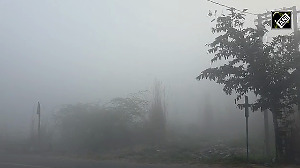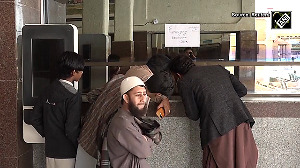Conglomerate supervision has taken off with the Reserve Bank of India going through the books of major corporates, banks, financial institutions and broking houses, which have diversified into multiple financial activities.
The supervision is done jointly with other regulators including the Insurance Regulatory and Development Authority and the Securities and Exchange Board of India for monitoring of fund flows within the group companies.
This follows the recommendation of the inter-regulator committee set up by the RBI, Sebi and Irda to identify Systemically Important Financial Institutions.
Some major entities identified as SIFI are financial intermediaries of major corporate groups like the Tatas, the Birlas and the Bajaj group.
In addition to non-banking financial companies such as Reliance Capital, GE Capital, Sahara and HDFC, banks like State Bank of India, ICICI Bank, Punjab National Bank, Kotak Bank, Bank of India, Bank of Baroda, Citibank, Standard Chartered Bank, Corporation Bank and IDBI Bank, too have been included, not to mention broking houses like DSP Merrill Lynch.
All these entities identified offer multiple financial services ranging from broking, insurance, mutual funds, banking, and primary dealership.
In conglomerate supervision, depending upon the major line of business, one of the regulators will be the apex supervisor and others will assist in a coordinated manner.
Earlier, each entity within the group was regulated separately by the concerned regulator. In the event of there being a problem, data was shared between the regulators to find out the details of the discrepancies.
With each of these entities diversifying into an array of financial activities, it is feared that there might be channelisation of funds into inter-group companies.
Therefore, if one such related entity get into trouble, the entire system would suffer. In order to keep a better check on the flow of funds and avert any financial disaster, joint supervision has been envisaged.
Entities have been identified on the grounds that they have diversified into the insurance sector with business of over Rs 100 crore or in the mutual fund business, where its name is among the top 70 per cent of funds in terms of assets under management.
Further, they have been identified on the basis of them being deposit taking NBFCs, again ranking among the top 70 per cent in the industry in terms of deposit base.
NBFCs, which are non deposit-taking, but having funds in excess of Rs 2,000 crore (Rs 20 billion) or are primary dealers, and ranking among the top 70 per cent of the segment in terms of turnover, have also been identified.






 © 2025
© 2025